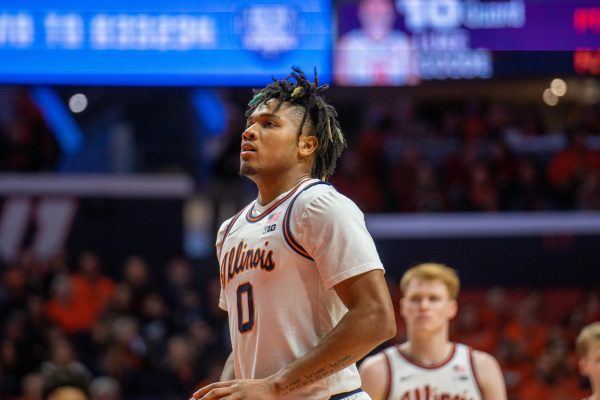Other Campuses: New academic standards set for student athletes
March 16, 2005
(U-WIRE) BLACKSBURG, Va. – The Academic Progress Rate, which will go into effect in December, not only takes into account the usual six-year graduation rates, but will also reduce the number of scholarships given for teams that have players who leave early from school or are named ineligible.
Virginia Tech, along with over half of the 328 Division-I schools, could see scholarship reductions because of student-athletes’ poor academic performance in the classroom.
Teams with an APR of less than 925 out of a possible 1,000 will also fall into this category. They are looking for an approximate 50 percent graduation rate.
Tim Parker, Tech’s assistant director of athletics, said the athletic department supports the new academic standards.
“All we had to go on in the past was graduation rates,” Parker said. “This is going to take into account additional factors and it will be a nice compliment.”
Get The Daily Illini in your inbox!
Although the APR does not penalize universities until next December, the NCAA sent out report cards to all Division-I athletic teams to show them where they would stand. If it came into effect right now, Tech’s soccer, baseball and men’s tennis teams, all with APRs below 925, would be in danger of losing scholarships.
Parker said he believes Tech’s statistics will jump a considerable amount next year and will not cause any scholarship losses.
“This initial data is so small that when one or two people leave their team, it is not an accurate reflection of that team’s statistics,” he said.
Next year, each team will have only two years of data research instead of the eventual four-year cumulative data set that will take effect in 2007. Because of this, the NCAA will implement confidence intervals to make up for the lack of data.
“With the confidence level, the baseball and soccer teams would both be able to end up in the high bracket above 925,” said Parker. “So men’s tennis is the only team that actually fell below the confidence level.”
Parker said in order to lose scholarships, a team must both have an APR of less than 925 and have at least one team member who is named ineligible and leaves school. Only athletes on partial or full scholarships are eligible to earn points.
According to The Washington Post, “Sports that would be most affected are football (with 30.7 percent of teams below 925); baseball (23.9 percent); and men’s basketball (20.1 percent).”
Both of the Hokies’ football and basketball teams are above the minimum 925 APR, with the basketball team at 929 and the football team at 938.
Even though the athletic department supports the initiative, Parker said it would take a couple of years before we can determine its overall success.
“We continue to feel good about the student athletes our coaches recruit and are confident in our coaches and look forward to the APR’s second year, when our data will jump a considerable amount,” he said.






